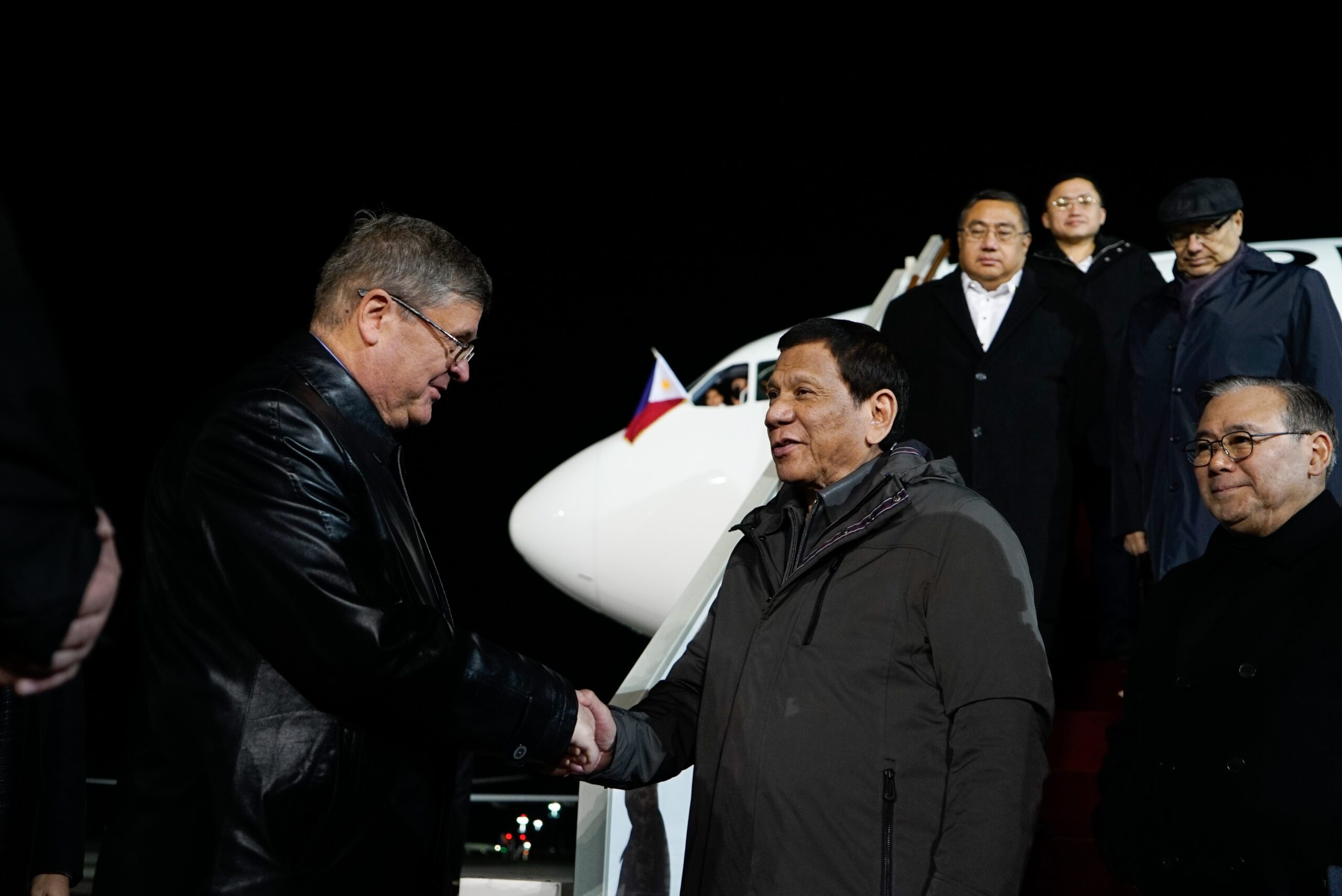SUMMARY
This is AI generated summarization, which may have errors. For context, always refer to the full article.

MANILA, Philippines – The Philippine government is aiming to ink a bilateral labor agreement with Russia as President Rodrigo Duterte makes his second official visit there, Philippine Ambassador to Russia Carlos Sorreta said on Wednesday, October 2.
The labor agreement is among the priorities of the Philippine government as the number of overseas Filipino workers (OFWs) – many of whom are employed as household service workers – have increased throughout the last years, despite the limited number of available visas.
“I hope and I believe the President will raise it with President [Vladimir] Putin dahil mahalaga ang overseas Filipinos kay Presidente (because overseas Filipinos are important to the President). I cannot imagine him not raising it and putting his advocacy behind it,” Sorreta told reporters, adding that Duterte’s backing of the agreement would be a big boost to efforts to work out details “on the ground.”
“Alam mo ‘yung mga agreement na ‘to hindi nahuhulog sa langit na buo na eh. Tinatrabaho ‘yan bawat comma, period, at salita…. On the President, I think he will raise it, malaking tulong ho ‘yun sa aming trabaho para maisulong ang isang bilateral labor agreement,” he added.
(Agreements like this don’t just fall out of the sky. Each comma, period, and word is worked on. On the President, I think he will raise it and it will be a great help to our efforts to come up with a bilateral labor agreement.)
Why is the agreement needed? Sorreta said a labor agreement would first and foremost grant “legal status” to Filipinos who wished to work in Russia.
Due to the limited number of available jobs for foreigners, Sorreta said the Russian government has placed a quota on the number of visas it issued to foreigners working in the household sector, construction sector, service sector, and manufacturing sector, among others.
Citing figures from the Russian government, Sorreta said there were some 10,000 Filipinos in the northern country. About 90 to 95%, Sorreta said, were women who worked as nannies and domestic workers.
“The sad thing is very few, very, very few [have this visa] because there are only about a hundred legal visas available for nannies and household service workers. So the rest do not have this visa to work here, but they work here. They are doing very well,” he said.
Sorreta said the Philippines wanted a bilateral labor agreement to address this and ensure the welfare of Filipinos when working in Russia. As it stands, Philippine officials work with Russian authorities to help ensure Filipinos workers were not detained and were turned over to Philippine officials to be safely repatriated when needed.
While it is rare for the Phlippine embassy to receive complaints of abuse from OFWs, Sorretta said there have been many repatriation cases. At least 17 were carried out “in the last few weeks,” some of which were for “medical” reasons.
Challenges faced: Meanwhile, Sorreta said the continuous recruitment of Filipinos despite the limited number of available working visas have complicated discussions on a labor agreement between the two countries. This was usually seen when Filipinos would urge their relatives and neighbors to work in Russia.
Sorreta appealed to Filipinos to hold off on recruiting others to work in Russia to ease discussions on the labor agreement.
“While we are negotiating, illegal workers continue to enter. This doesn’t help in negotiations…. We need to show the Russian government we know how to abide by their laws so that they can trust and understand us more, which is the basis of negotiations,” he said in a mix of English and Filipino.
Duterte’s October Russia visit is meant to enhance cooperation on many policy aspects, including economic exchange. Sorreta said the President’s agenda – which is packed with cultural activities and a bilateral meeting with Putin – is envisioned as making up for “lost time and opportunities” with Russia. – Rappler.com
Add a comment
How does this make you feel?
There are no comments yet. Add your comment to start the conversation.